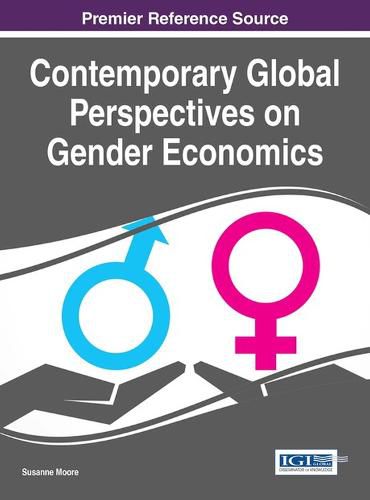Readings Newsletter
Become a Readings Member to make your shopping experience even easier.
Sign in or sign up for free!
You’re not far away from qualifying for FREE standard shipping within Australia
You’ve qualified for FREE standard shipping within Australia
The cart is loading…






This title is printed to order. This book may have been self-published. If so, we cannot guarantee the quality of the content. In the main most books will have gone through the editing process however some may not. We therefore suggest that you be aware of this before ordering this book. If in doubt check either the author or publisher’s details as we are unable to accept any returns unless they are faulty. Please contact us if you have any questions.
The rise of women in the workforce has led to many campaigns for wage equality and the impartial treatment of both sexes as they pursue careers previously designated as either a man’s or a woman’s job. The impact of these campaigns has been felt, but a sense of gender stereotyping still affects not only the social and cultural well-being of the modern organization, but the drive for innovation and economic success as well.
Contemporary Global Perspectives on Gender Economics challenges current economic theory, targeting the way gender is often used for economic gain or increased market share. Experts realize that company growth can no longer be achieved by taking a conventional approach, but few follow through with introducing new frameworks that change the way diversity is treated. By acknowledging that issues like childcare and the wage gap are not only a woman’s challenge, this book speaks to legislators and policymakers, economic developers, corporate practitioners, educational faculties, and students of all disciplines who are looking to change the way gender is viewed in the workforce.
This essential reference source features chapters that combine the concepts of gender theory, sociology, and economics and cover topics including economic equality, gender bias, the history of gender economics, industrial creativity, and the impact of social connectedness on life satisfaction.
$9.00 standard shipping within Australia
FREE standard shipping within Australia for orders over $100.00
Express & International shipping calculated at checkout
This title is printed to order. This book may have been self-published. If so, we cannot guarantee the quality of the content. In the main most books will have gone through the editing process however some may not. We therefore suggest that you be aware of this before ordering this book. If in doubt check either the author or publisher’s details as we are unable to accept any returns unless they are faulty. Please contact us if you have any questions.
The rise of women in the workforce has led to many campaigns for wage equality and the impartial treatment of both sexes as they pursue careers previously designated as either a man’s or a woman’s job. The impact of these campaigns has been felt, but a sense of gender stereotyping still affects not only the social and cultural well-being of the modern organization, but the drive for innovation and economic success as well.
Contemporary Global Perspectives on Gender Economics challenges current economic theory, targeting the way gender is often used for economic gain or increased market share. Experts realize that company growth can no longer be achieved by taking a conventional approach, but few follow through with introducing new frameworks that change the way diversity is treated. By acknowledging that issues like childcare and the wage gap are not only a woman’s challenge, this book speaks to legislators and policymakers, economic developers, corporate practitioners, educational faculties, and students of all disciplines who are looking to change the way gender is viewed in the workforce.
This essential reference source features chapters that combine the concepts of gender theory, sociology, and economics and cover topics including economic equality, gender bias, the history of gender economics, industrial creativity, and the impact of social connectedness on life satisfaction.